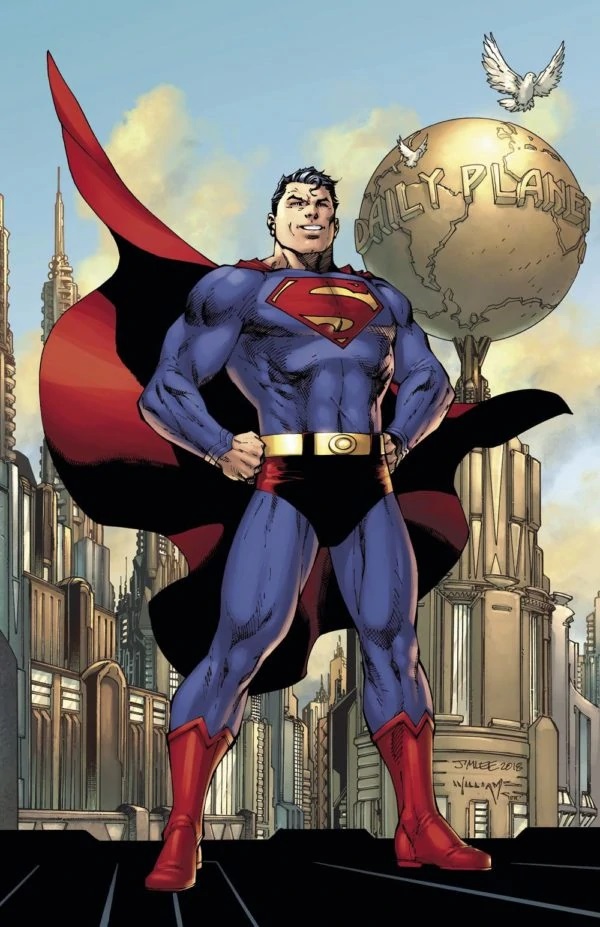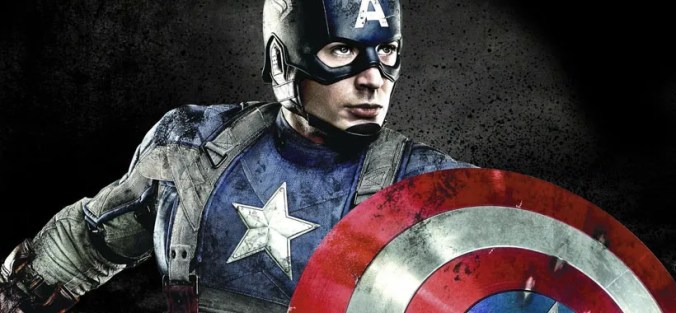Let me strive every moment of my life to make myself better and better, to the best of my ability, that all may profit by it. Let me think of the right and lend my assistance to all who need it. Let me take what comes with a smile, without loss of courage. Let me be considerate of my country, of my fellow citizens and of my associates in everything I say or do. Let me do right to all, and harm no one.
The Doc Savage Oath
So what does it all mean?
For the historians of pop culture (both professional fan and the kind that gets paid), there’s a mild interest in Doc Savage for all the bastards he’s ever spawned. Every cape




of screen and page is linearly descended from Doc, the “proto-superhero,” via Superman. Every globe-trotting adventurer, like James Bond, Indiana Jones, and especially Johnny Quest, owes his far-flung trips and exotic locales to Doc’s pre-jetsetting prop-wing adventures. Scooby Doo learned to unmask villains at his feet, the Venture Brothers comment on him in their grandfather’s image, even Yankee WWII movies (and all of their spawn) developed out of the squaddie camaderie of the Fabulous Five – right down to the sickly-looking radio man and the rough-and-smooth banter. Paul Atreides is Doc Savage’s son, by way of the Lady Jessica.
But, in this day and age, even Kevin Smith and Quentin Tarantino are vaguely aware of Doc, but don’t really care.
Pulp aficionados pay respect to the Man of Bronze, though not so much these days as they do The Shadow. The Eighty-Sixth Floor collected curiosities, and a few dozen old men collect Bama-covered reprints. But Doc’s poor showing in the post-pulp world means that the temporary reflag in interest in the 1960s has faded ever since – the more because of the terrible movie adaptation.
no, I’m not posting a picture here. We do not talk about the Doc Savage movie in this house.
Even readers grew tired of him. Doc is very much a product of the Thirties and early Forties. Later adventures such as The Terrible Stork are strange, eerie, pantomime Doc Savage with mechanical characters clanking through uncharacteristic and nonsensical actions. In Stork, Doc does parlor tricks for Renny, yells at him, and suddenly goes into his laboratory to demand “why did I do that?” He struggled during the War, and had no place in the new world born of nuclear ashes and economic superpowers.
But it’s his very Thirties-ness that makes him what he is.
If Superman is a timeless “truth, justice, and the American way,” then Doc veers closer to Captain America – a paragon, a very specific paragon, for a certain era to look up to.

Like Steve Rogers, Doc’s prison of zeitgeist, how closely he’s bound to the era he was created, is what makes him timeless. No one’s successfully taken Doc, his wonderful toys, or the Fabulous Five out of the ice yet – though some have tried. Taking Steve Rogers out of the ice into …well, whatever present day the writers feel like pulling him out in, to comment on the vast difference between their present day and the virtues of “just a kid from Brooklyn”… in fiction is easy. Confronting Doc, hardwired to the Thirties with all its bright mad possibility and looming terrors and misery and heroism, as a modern reader is hard.
That is, after all, what the world looks like now, and it can be hard to look it in the eye like that.
And what of the Thirties? This, to start with: Doc is a scientific marvel, made not from favorable genetics but from training and upbringing, touching the very limits of human physical and mental ability. You can self-help yourself in Doc’s footsteps! Doc is equipped with money and power, and uses it to cross the world “righting wrongs and punishing the wicked” because he and his friends are so addicted to adrenaline they can’t imagine a life without flying bullets. Later generations can snicker at the PTSD victims and laugh at the corny oaths and simplistic villains – Dent laid them out as he, personally, saw them.
Dent’s incredibly personal touch is an aspect of his timelessness, too. Here are masked or disguised villains, motivated by greed or pride, and here is a Man of Bronze and his closest friends to stop them. Here are the terrors of his age – economic depression, rising fascism, wars and rumors of wars, rapacious landlords and greedy bankers – and here is a face under a hood, ready for Doc to punch in and hoist by his own petard. Here are the exercises you, too, can do at home to become “better and better, to the best of my ability, that all my profit by it.” Here’s the oath that sounds a little too earnest to be a cynical marketing gimmick. Here’s increasingly-elaborate Wonderful Toys, handheld superfirers that shoot bullets that don’t kill and have tracer rounds, cars with miniaturized televisions in them, soundproofed airplanes. Wouldn’t those be nice? Here’s a delicate brain operation that makes criminals Better. And here’s Lester Dent, holding his heart on his sleeve, making exactly the paragon of virtue he wanted to see in the world…for good and for ill.
It’s a peculiar thing, but the more you write your own foibles, your own obsessions, your own quirks — from being raised in a hundred-year-old adobe by two loving hippie parents who shout too much, and from reading books that are always twenty years out of date because you got them at the library book sale and from chasing homeschool dreams of da Vinci and Doc Savage and orangutans and Asian philosophy and printing ‘zines and memorizing The Simpsons and Mystery Science Theater — the more timeless and “relatable” (oh that word!) your work becomes. My best stories are the ones where I wear my heart on my sleeve.
And the only author I’ve ever read who puts quite as many fingerprints as Lester Dent on every word of prose was Robert Heinlein.
And finally, Doc’s earnestness shines from everything. As a Millennial, I lived through the hipster era. I asked some friends of mine if they thought I was a hipster, as I was into homebrewing beer, foreign folk songs, swing dance, and retro fashion. “No,” was the immediate answer, “you enjoy everything too earnestly to be a hipster.” Which is why they hung out with me. In an age defined by cynicism, “fake news,” scoffing, affect, and sneers, the earnestness of Dent and of Doc stands out by way of contrast. Stands out? Bestrides like a colossus, more like. There is much every modern reader needs to take Doc to task for, to criticize and doubt him for – the Crime College, the blackface, the casual stereotyping, telling Pat to stay in the kitchen, the whole raft of Dent’s vintage Thirties values as expressed through his heroic paragon who has suddenly become a plaster saint.
And after all the criticisms are rightly levelled and Doc’s superlative goodness is cut down to a more appropriate fit…there is still that earnestness that Doc is a paragon, is what we all could be and could strive for, is ultimately on the side of justice. And it really does stand out by way of contrast from every word written, uttered, moaned, tweeted, or screamed that one imbibes from 2023.
This might be the twilight of Doc Savage. I might be the last one alive to call myself a fan of the Man of Bronze, who has ever tried to copy Doc’s Method of Self-Improvement at home, who can recite the history of how Ham got his name, and Monk’s role in it. Even if the remake gets made (with Dwayne “The Rock” Johnson or whoever follows him), I doubt it will raise much interest in the books. They’re too much of their time, too idiosyncratic, too influential, and, not in the least, super objectionable to any decent human being living after the Civil Rights movement. There’s a lot of artistic, ethical, and historical distance to overcome.
But it is worth overcoming. For all his myriad bastards, no one is aggressively hopeful, deeply personal, and, in Dwayne Johnson’s words, “FUCKING WEIRDO” as Doc Savage. No globe-trotting spy or kindly alien or superscientist comes with an earnest promise of self-improvement or a sincere belief you can replicate his heroism as home. No other paragon, with the possible exception of Captain America, so completely embodies his zeitgeist or the stamp of his creator, and in embracing them so completely, transcends them. Superman stopped being a New Deal superhero before Doc did.
We have rising fascisms. We have wars and rumors of wars. We have economic depressions, bright mad possibility, and wild-eyed philosophies struggling to break free, no matter who it hurts when they escape. The Thirties came back ninety years later.
We need Doc Savage. His time comes around again, but we need a Doc Savage to fit our times. We need him to be a Doc Savage who’s striven to be better and better these last ninety years, and rights the wrongs he did then and all the wrongs we know are wrong in 2023.
We need Lester Dent to put a face behind the wicked mask, and send Doc, Monk, Renny, Ham, Long Tom, Johnny, and Pat down there to bust trouble, gum up the works, feed the hungry, smash the munitions, right wrongs, and punish evildoers. Just to show it can be done.
We need to remember it can be done – even if only on pulp paper for 10c a copy.

That’s what it all means.
Doc Savage at 90
Introduction: The Man of Bronze
Bonus post: The Doc Savage Method of Personal Development



Recent Comments